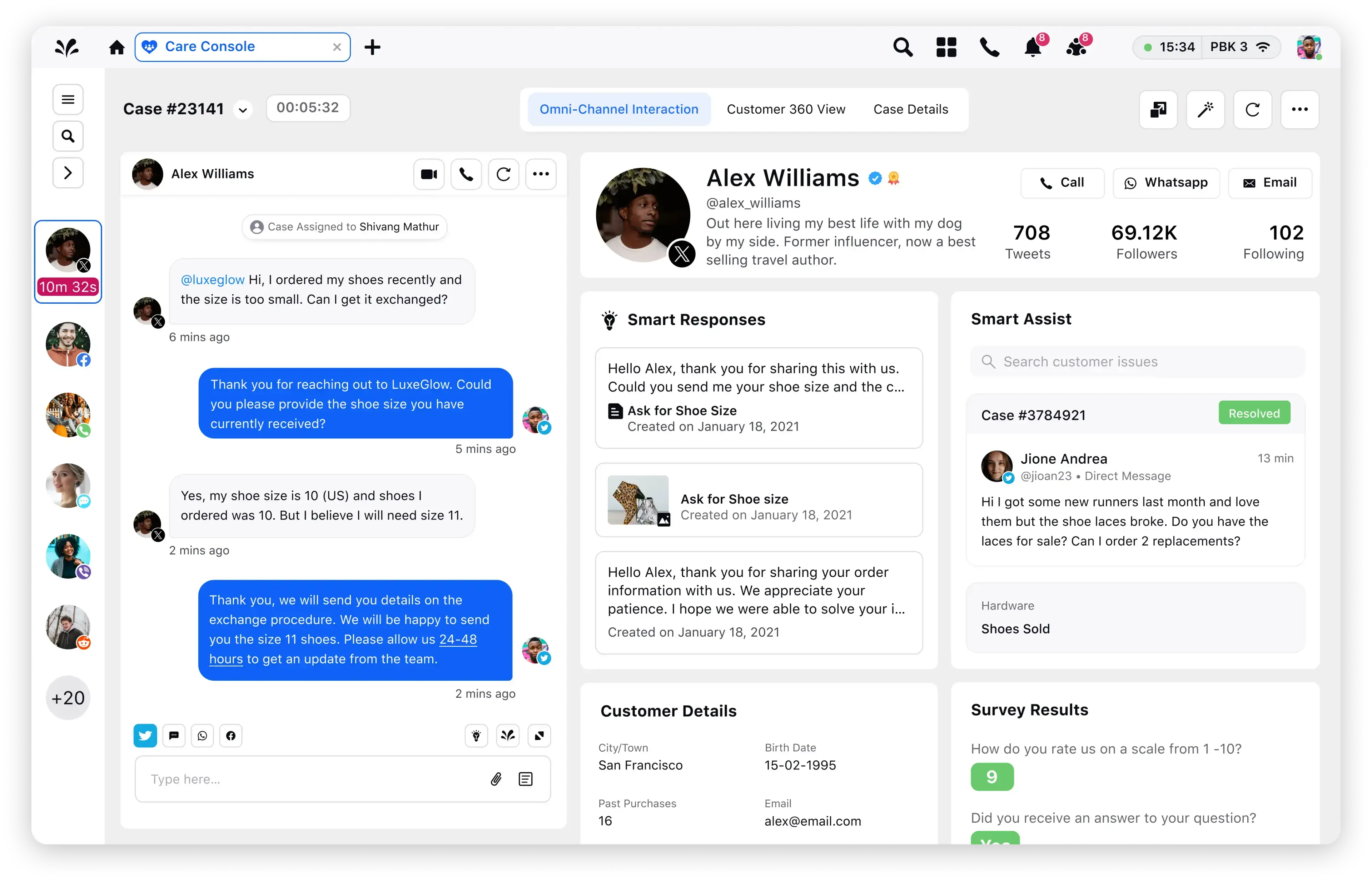The AI-first unified platform for front-office teams
Consolidate listening and insights, social media management, campaign lifecycle management and customer service in one unified platform.

Five Powerful Lessons From The World’s Most Influential CMOs 2020
This year changed the rules of engagement for marketing: a global pandemic and a renewed call for action on systemic racism challenged Chief Marketing Officers (CMOs) to engage with employees, customers, and communities in new ways. Their stories made the World’s Most Influential CMOs 2020 report our most important yet.
Forbes, Sprinklr, and LinkedIn partnered to score 427 CMOs across 16 different data points, including their visibility on Covid-19 and the Black Lives Matter movement. The top 50 CMOs demonstrated the marketing community’s ability to meet these challenges head on with thoughtful, innovative approaches. Here are some top take-home lessons.
A pandemic is a time to serve, not to sell
That was the message from Mastercard CMO Raja Rajamannar. Like him, the most influential CMOs saw that their communities were hurting and anticipated their needs, taking the opportunity to build long-term relationships.
Some of these moves involved financial donations, such as Mastercard’s $250m fund for small businesses. Others saw donations in kind, such as the meals that KFC donated to frontline workers on CMO Andrea Zahumensky’s watch.
Others combined money with thoughtful campaigns engineered to help customers. Lego Group CMO Julia Goldin launched #letsbuildtogether, an omnichannel campaign that showed parents how to keep children busy with Lego products. The company backed this up with a $50m donation to children’s relief and learning programs.
Employees are part of your community
CMOs turned their gaze inward too, supporting their employees in new ways. As both CMO and Chief of People at X, formerly Twitter, Leslie Berland helped make it one of the first companies to institute an optional permanent work-from-home policy.
Others focused on financial support. Verizon’s Diego Scotti avoided layoffs through staff retraining while Target CMO Rick Gomez helped add a $2 per hour bonus to employee salaries and introduced new healthcare benefits. Some companies that couldn’t keep on staff did their best to soften the landing. At Away, CMO Jen Rubio rolled out extended healthcare and severance pay for staff while offering job seeking support.
High-performing CMOs are outspoken on social issues
Many CMOs engaged directly with the Black Lives Matter movement. CMOs at Dashlane and Braze were among those leading a pack of concerned companies in pressuring Facebook to address white supremacist hate speech on its platform. We also saw companies backup their statements of support with concrete financial and community action: Netflix vowed to move $100m to financial institutions serving Black communities; UPS called for legislative action on hate crimes at both the state and federal level; Target delivered essential supplies to Black communities in its hometown of Minneapolis.
Technology can make a difference
It’s no coincidence that by far the largest proportion of top CMOs in this year’s report – almost a third – are from the tech sector. From the Covid-19 contact tracing functionality that Apple introduced under outgoing CMO Phil Schiller, to free video conferencing services from Cisco and Google, technology companies are well-equipped to address social distancing issues. SAP CMO Alicia Tillman blended technology with employee care by making the company’s Bring Your Child To Work Day happen virtually.
Some adventurous non-tech CMOs used digital media to rise to the pandemic challenge. Budweiser’s Marcel Marcondes created a website to help connect struggling food outlets with takeout customers, while auto companies were especially innovative with tech. Volkswagen CMO Jochen Sengpiehl responded to the cancelation of the Geneva Motor show with a virtual reality showcase, while BMW’s Jens Thiemer engineered a thoughtful podcast to entertain people in lockdown.
Tech was a popular vector for fighting loneliness and isolation. Levi’s, AT&T and Verizon were among several companies offering organized online performances – often to raise money for communities in need.
Innovate with what you have
With travel and social gatherings constrained, companies had to think quickly when solving logistical marketing challenges. Burger King’s Fernando Machado used existing footage when the company couldn’t do new shoots, and also used tech in the form of a QR code to keep viewers hooked. As CMO of the National Hockey League, Heidi Browning Pearson also turned a challenge into an opportunity: She responded to a lack of roaring crowds at events by picking up player conversations with ambient microphones.
There’s so much more to read about how these influential CMOs adapted to 2020’s challenges, and how you can apply their lessons to your own operation. Download the World’s Most Influential CMOs 2020 report here.
